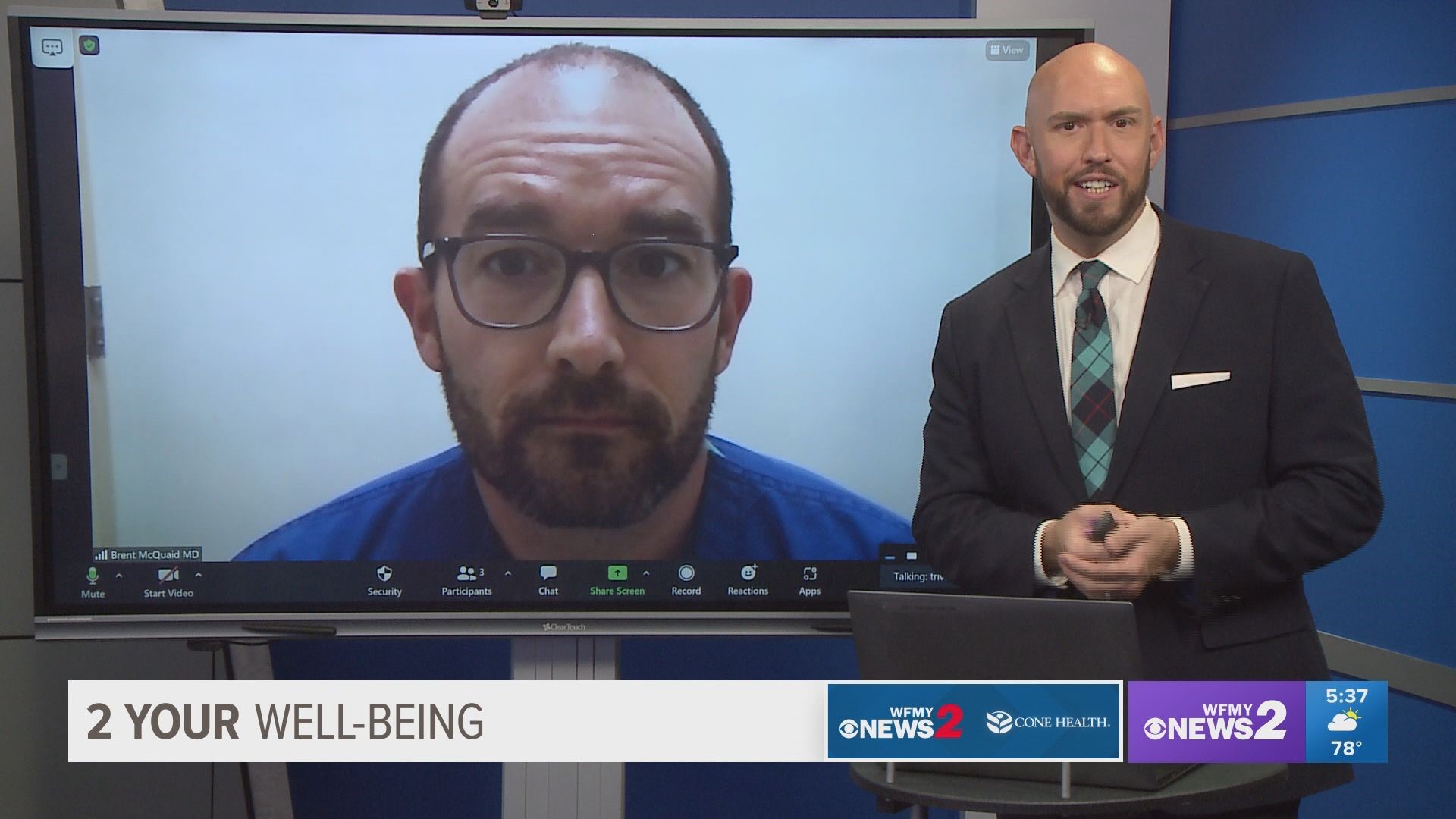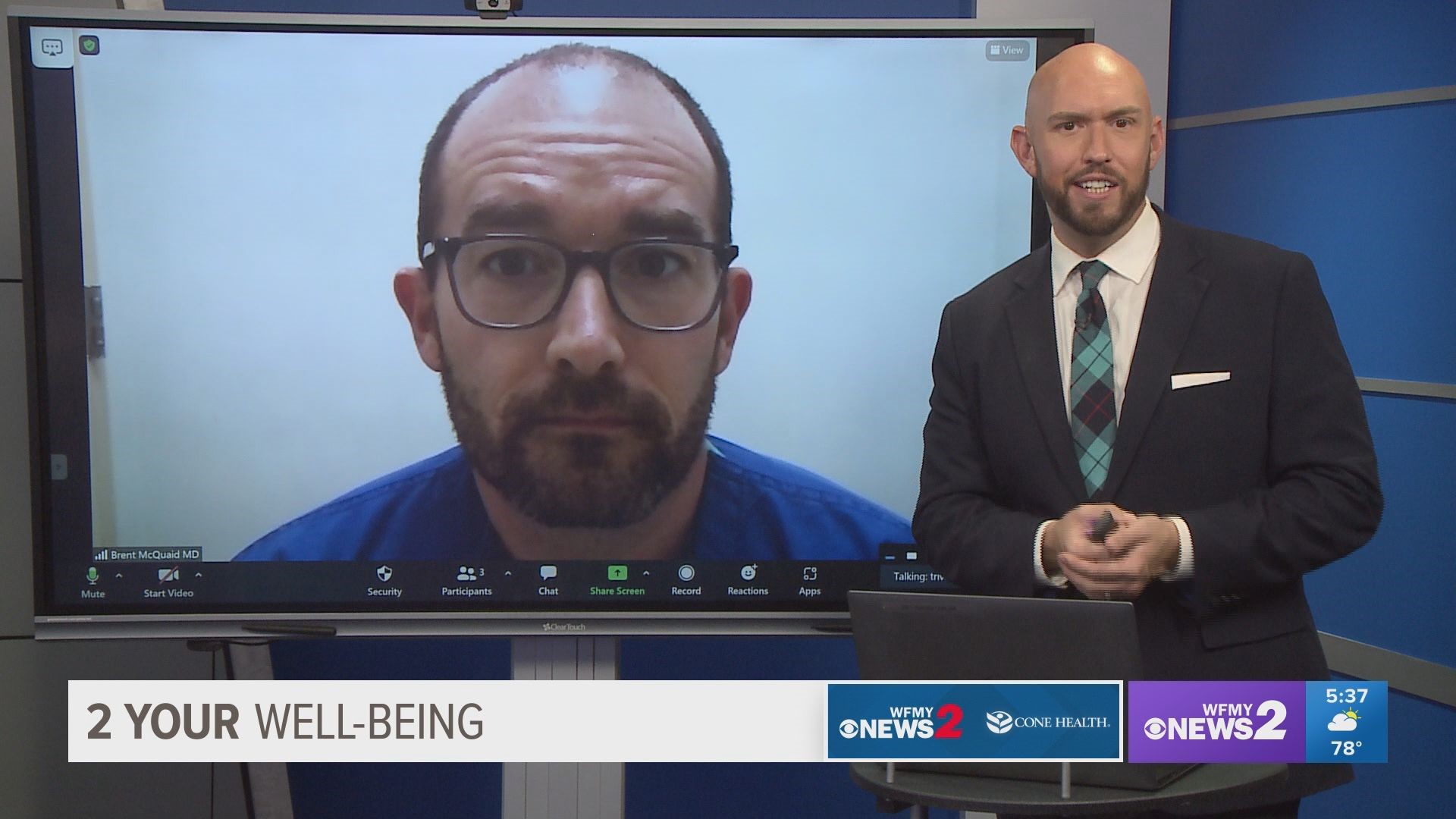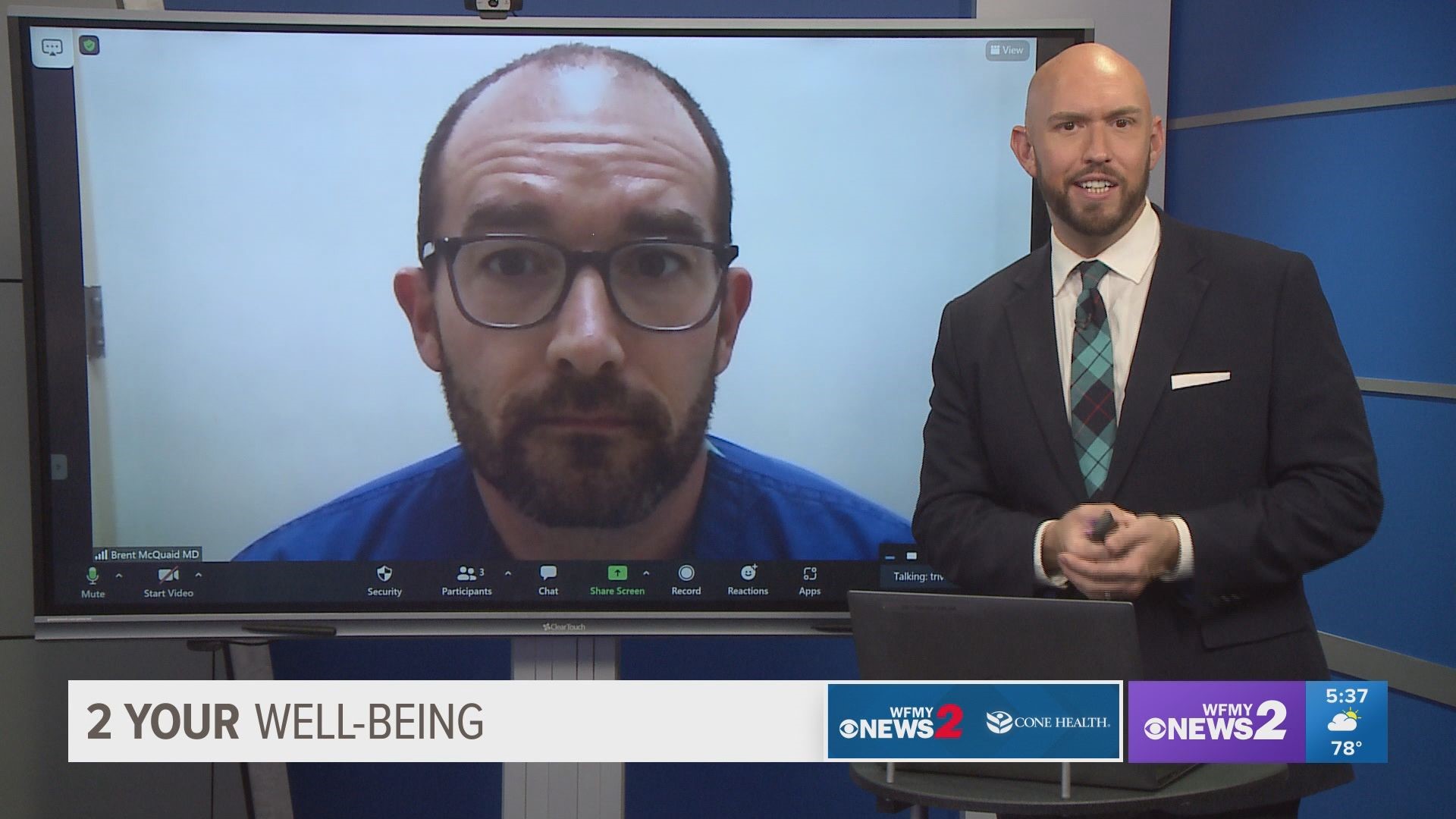GREENSBORO, N.C. — As coronavirus continues to spread in our state, doctors see an increase in cases of more contagious variants and a rise in hospitalizations.
To fight the pandemic, health experts continue to push vaccinations. We talked to 2 Your Well-Being health expert Dr. Brent McQuaid, Cone Health COVID-19 Lead Physician, about the importance of getting vaccinated.
Dr. McQuaid said the COVID-19 vaccine is very safe and effective. And with the spread of the incredibly infectious delta variant, getting more of the population protected with immunity from the vaccine can help control its spread. Dr. McQuaid said the majority of patients he sees being hospitalized with COVID-19 are unvaccinated. He said getting the shot can help keep you out of the ICU. Even if you've had COVID-19, Dr. McQuaid said it's still important to get the vaccine to boost your immunity and protect you from contracting the virus again.
If you're already vaccinated, Dr. McQuaid said there are still things you need to do in order to keep others in your community safe. He said wearing a mask and social distancing are important even if you're vaccinated. Dr. McQuaid said coronavirus can spread between vaccinated individuals, so even if the vaccinated person won't have as severe of symptoms, they could pass it on to someone who does.
Mild, cold-like symptoms among vaccinated people are part of the reason why Dr. McQuaid said testing is important. Getting tested just lets you know when you're infected, so you can take the proper precautions to stop the spread, Dr. McQuaid said. But when should you get tested? Dr. McQuad said if you have a cold of any type, get a test.
If you do test positive, Dr. McQuaid said as long as you have very mild symptoms, you don't need to go to the doctor or emergency room. But, if you have any medical conditions like being overweight, high blood pressure, heart disease or diabetes, or you're an older adult, Dr. McQuaid says you should talk to your doctor about receiving treatment. If you're short of breath, or your oxygen levels drop, or your symptoms are so bad you cannot take care of yourself, Dr. McQuaid says then it's time to go to the emergency room.
For families with young children under the age of 12 who are not yet eligible for a COVID-19 shot, Dr. McQuaid said you should encourage them to wear masks and practice social distancing and good hand hygiene. Again, if your child is sick or exposed to COVID-19, monitor them for symptoms and get them tested.



